If you breed birds, the subject of basic genetics immediately becomes relevant, yet many fanciers shy away from the subject. Here PAUL DONOVAN discusses the bird basics and explains what’s a chromosome, what’s a gene, what is DNA – and most importantly, why it all matters in our hobby

THERE’S only one thing that you can say about genetics and that is: “It is a mystifying sphere of science, which controls the way every living thing looks like and functions.” While far from being a geneticist, in my next two articles I thought I’d try and unravel this subject in a lay person’s terms and see how it affects birds.
Genes influence every aspect of a bird’s characteristics; from what it eats, what it looks like and whether it flies or not, to feather coloration, the type of nest it builds, egg colour, etc. Qualities that constitute its make-up will be inherited from both the male and female as they are passed down through the bloodline. But what are the elements that contribute to all these factors?
DNA (deoxyribonucleic acid) is a double helix-shaped strand of coded material. It contains all the instructions that determine the structure and functions of every cell, as well as being responsible for passing on characteristics from parents to sibling.
A gene is a segment of DNA, which carries the blueprint to control a cell’s physical characteristics, growth and development. It is ultimately responsible for a particular characteristic of an organism. Most genes are located on the same type of chromosome, so each cell has two copies of a gene; these can be identical or differ in certain respects.
هذه القصة مأخوذة من طبعة February 15,2017 من Cage & Aviary Birds.
ابدأ النسخة التجريبية المجانية من Magzter GOLD لمدة 7 أيام للوصول إلى آلاف القصص المتميزة المنسقة وأكثر من 9,000 مجلة وصحيفة.
بالفعل مشترك ? تسجيل الدخول
هذه القصة مأخوذة من طبعة February 15,2017 من Cage & Aviary Birds.
ابدأ النسخة التجريبية المجانية من Magzter GOLD لمدة 7 أيام للوصول إلى آلاف القصص المتميزة المنسقة وأكثر من 9,000 مجلة وصحيفة.
بالفعل مشترك? تسجيل الدخول
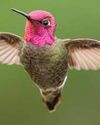
The World's Best-Known Hummingbird?
Intensively studied, the gem-like Anna’s hummingbird is a welcome visitor to the gardens of America’s most populous state: California. Bill Naylor investigates its life history
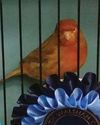
The charm of the English Cinnamon
Despite its long and complicated history, the true Cinnamon canary is still with us – in the hands of a tiny group of breeders. DONALD SKINNER-REID reckons it deserves wider appreciation
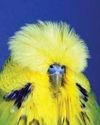
Spangles: a personal overview
FRED WRIGHT relates a budgie story of over-exploitation, consequent problems and abundant potential for the future

New converts to old breeds
Old and rare canaries have a reputation for adding fresh interest and challenge to the hobby. PETE HOOK and NICK JOY agree, and explain the birds’ charm to Dave Brown

Themed aviaries are a hit with the public at annual Stafford show
DECORATIVE AVIARY DISPLAYS from a CBS and an online bird keeping advice group were voted in the top three by visitors for the inaugural Stafford Aviary Competition.
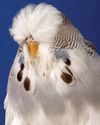
Pieds with potential
More than just a lesser variety, the dominant pied will introduce challenge and change into most studs, reckons CLIVE WAKEMAN. Here he discusses pairings to try and others to avoid
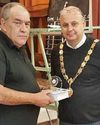
Club News
Welcome to the club and show pages – the bit that’s all about you Results: convention, specialist & rare and Breeder of the Year
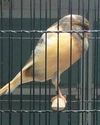
Canaries Month by Month:
With Christmas around the corner, BRIAN KEENAN is well into his winter programme, and reckons he might deserve a nice outcross
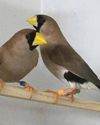
Smart Choice, Docile Nature
Dave Brown welcomes the masked grassfinch to his birdroom and shares advice on this lovely Australian species
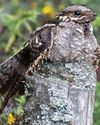
The truth about the ‘flying toad'
Odd local names and weird superstitions can’t hide the beauty and elegance of the nightjar, a species that has made a fascinating subject in a few zoo collections, reveals BILL NAYLOR